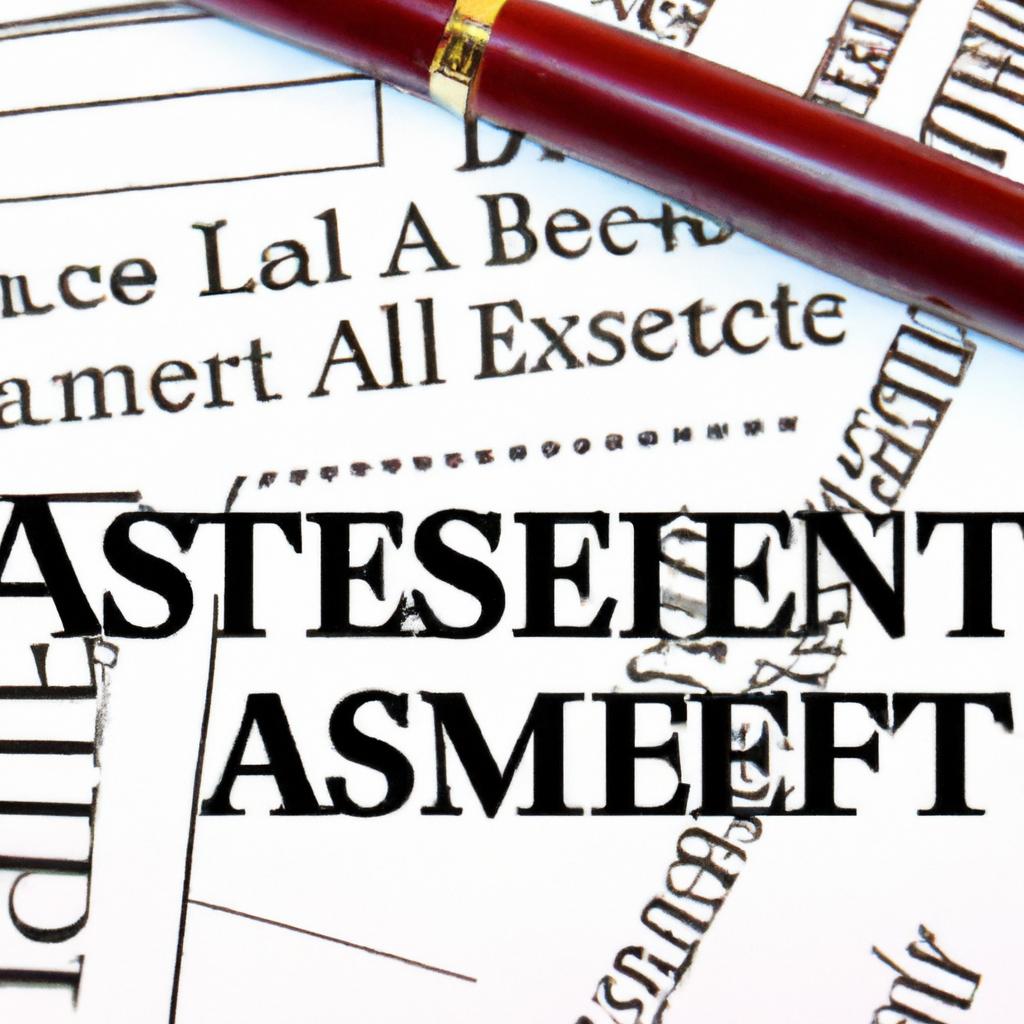Probate. An oft-feared word that strikes unease in the hearts of many individuals embarking on estate planning. The complex and costly legal process of probate can be overwhelming and time-consuming, but fear not, for there are alternatives to bypass this cumbersome procedure. At Morgan Legal Group, based in the bustling metropolis of New York City, our team of experienced lawyers specialize in crafting efficient strategies to help you avoid probate and secure the future of your estate. Join us as we delve into the intricacies of probate avoidance and reveal the secrets to a streamlined and hassle-free estate transfer process.
Strategies for Minimizing Probate Costs
When it comes to minimizing probate costs, there are several strategies that can be employed to ensure a smooth and cost-effective process for your estate. One common strategy is to create a revocable living trust, which allows your assets to pass directly to your beneficiaries without going through probate. By transferring your assets to a trust, you can avoid the time-consuming and expensive probate process, while also maintaining control over your assets during your lifetime.
Another effective strategy for minimizing probate costs is to designate beneficiaries on your retirement accounts, life insurance policies, and other financial accounts. By naming beneficiaries on these accounts, you can ensure that these assets pass directly to your loved ones outside of probate. Additionally, it is important to review and update your estate plan regularly to ensure that it accurately reflects your wishes and minimizes probate costs.

Asset Titling and Beneficiary Designations
When it comes to avoiding probate, one effective strategy is to properly title your assets and designate beneficiaries. By ensuring that your assets are titled correctly and that beneficiaries are designated, you can help streamline the transfer of your assets to your loved ones after your passing.
Proper asset titling involves ensuring that your assets are titled in a way that allows them to bypass probate. This can include titling assets jointly with rights of survivorship, establishing payable-on-death (POD) or transfer-on-death (TOD) designations, and creating trusts. Additionally, designating beneficiaries for assets such as retirement accounts, life insurance policies, and bank accounts can help ensure that these assets pass directly to the designated individuals, avoiding probate altogether.

Utilizing Trusts as Probate Avoidance Tools
When it comes to estate planning, utilizing trusts can be an effective way to avoid the probate process. Trusts can help your loved ones avoid the lengthy and costly probate process, ensuring that your assets are distributed according to your wishes in a timely and efficient manner. Trusts can also provide privacy for your estate, as the details of the trust remain private rather than becoming part of public record. By setting up a trust, you can ensure that your assets are protected and passed down to your beneficiaries without the need for probate.
There are different types of trusts that can be used as probate avoidance tools, including revocable living trusts, irrevocable trusts, and testamentary trusts. Each type of trust has its own benefits and considerations, so it is important to consult with an experienced estate planning attorney to determine which type of trust is right for your individual situation. By working with a knowledgeable attorney, you can create a comprehensive estate plan that includes trusts to help you avoid probate and ensure that your assets are protected for future generations.

Effective Estate Planning Techniques to Bypass Probate
One effective estate planning technique to bypass probate is to establish a revocable living trust. By transferring your assets into a trust, you can avoid the time-consuming and costly probate process. This allows your beneficiaries to receive their inheritance more quickly and privately. With a living trust, you retain control over your assets during your lifetime, and after your passing, the assets are distributed according to your wishes outlined in the trust document.
Another effective technique to avoid probate is to designate beneficiaries on certain accounts and assets. Assets such as retirement accounts, life insurance policies, and bank accounts with payable-on-death designations bypass probate and go directly to the named beneficiaries. This can help streamline the inheritance process and avoid delays associated with probate. Additionally, joint ownership of property with rights of survivorship allows the property to transfer to the surviving owner without going through probate. By implementing these strategies, you can ensure a smoother transition of your assets to your loved ones while avoiding the probate process.
Q&A
Q: What is probate and why should you avoid it?
A: Probate is the legal process of validating a will and distributing assets after someone passes away. It can be time-consuming, costly, and public, which is why many people try to avoid it.
Q: How can I avoid probate?
A: There are several ways to avoid probate, such as creating a revocable living trust, designating beneficiaries on accounts and assets, and owning property jointly.
Q: What is a revocable living trust and how does it help avoid probate?
A: A revocable living trust is a legal arrangement where you transfer ownership of your assets into the trust during your lifetime. When you pass away, the assets held in the trust are distributed to your beneficiaries without going through probate.
Q: Can I designate beneficiaries on my accounts and assets to avoid probate?
A: Yes, you can designate beneficiaries on accounts such as retirement plans, life insurance policies, and bank accounts to ensure that they pass directly to your chosen beneficiaries without going through probate.
Q: Are there any other ways to avoid probate?
A: Owning property jointly with rights of survivorship, creating transfer-on-death deeds for real estate, and having a payable-on-death designation on financial accounts are other ways to avoid probate.
Q: Is it important to consult with a legal professional when planning to avoid probate?
A: Yes, it is recommended to consult with a legal professional when planning to avoid probate to ensure that your estate plan is set up properly according to your wishes and state laws.
The Way Forward
In conclusion, there are various strategies and tools available to help you avoid probate and ensure a smooth transition of your assets to your loved ones. By planning ahead and seeking professional advice, you can protect your estate and simplify the inheritance process for your beneficiaries. Remember, avoiding probate is not only about saving time and money, but also about ensuring your final wishes are carried out effectively. So take the necessary steps today to secure a better tomorrow for your loved ones.
 With the ever-increasing complexity of estate planning, more and more individuals are looking to avoid probate. Probate refers to the legal process of validating a will and distributing assets after a person’s death. It can be a lengthy and costly process, often delaying the transfer of assets to inheritors. Additionally, probate proceedings are a matter of public record, which some people might find uncomfortable. Thankfully, there are ways to avoid probate, and in this article, we will discuss the most effective methods.
With the ever-increasing complexity of estate planning, more and more individuals are looking to avoid probate. Probate refers to the legal process of validating a will and distributing assets after a person’s death. It can be a lengthy and costly process, often delaying the transfer of assets to inheritors. Additionally, probate proceedings are a matter of public record, which some people might find uncomfortable. Thankfully, there are ways to avoid probate, and in this article, we will discuss the most effective methods.
1. Create a Revocable Living Trust
One of the most common ways to avoid probate is by creating a revocable living trust. A revocable living trust is a legal document that allows you to transfer assets during your lifetime and designate beneficiaries who will receive these assets after your death. The trust acts as the owner of your assets while you are alive, and you can revoke or change it at any time. When you pass away, the assets held in the trust are distributed to the designated beneficiaries without going through probate.
2. Joint Ownership
Joint ownership is another effective probate avoidance method. It involves owning assets jointly with someone else, such as a spouse, child, or business partner. When one owner passes away, the surviving owner automatically receives the deceased’s share of the property, bypassing the probate process. However, joint ownership can have its drawbacks, such as the potential for disagreements or liabilities of the co-owner affecting the property.
3. Designate Beneficiaries for Retirement Accounts
Retirement accounts, such as 401(k)s and IRAs, allow you to designate beneficiaries who will receive the funds in your account after your death. This transfer of assets occurs outside of probate, making it a useful probate avoidance tool. It’s essential to regularly review and update your beneficiary designations, especially after significant life events like marriage, divorce, or the birth of a child.
4. Use Deeds with Transfer-on-Death (TOD) Clauses
If you own real estate, you can consider using a TOD deed, which names a beneficiary who will receive the property upon your death. The beneficiary will only need to file a death certificate with the county recorder’s office to take title to the property, avoiding probate entirely. A TOD deed can be an effective way to transfer real estate outside of probate quickly.
5. Gifting Assets
Another way to avoid probate is by gifting your assets to your loved ones while you are alive. You can give monetary gifts or transfer property ownership to your designated beneficiaries. However, there are some implications to consider, such as gift tax laws, and it’s imperative to check with an estate planning attorney before making significant gifts.
Benefits of Avoiding Probate
1. Cost Savings
Probate can be expensive, with court fees, attorney fees, and other costs adding up. By avoiding probate, you can save your loved ones from incurring these costs and preserve more of your estate for them.
2. Privacy
As mentioned earlier, probate is a public process, meaning anyone can access the records and see what assets were distributed to whom. By avoiding probate, you can keep the details of your estate plan confidential.
3. Time-Saving
Probate can be a lengthy process, taking anywhere from six months to two years or more to complete. Avoiding probate can provide a faster and smoother transfer of assets to your loved ones.
Tips for Avoiding Probate
1. Seek Professional Help
Estate planning can be complex, and it’s essential to seek the help of a qualified attorney to ensure you have a comprehensive and legally sound plan in place. An experienced estate planning attorney can guide you through the various probate avoidance methods and help you choose the best options for your unique situation.
2. Keep Your Estate Plan Updated
Regularly reviewing and updating your estate plan is crucial, as your circumstances may change over time. Updating beneficiary designations, adding new assets, or adjusting your living trust can ensure that your assets will pass to your desired beneficiaries without any issues.
Real-Life Example
Consider the case of one elderly couple who took all the necessary steps to avoid probate. They created a joint revocable trust and retitled their assets appropriately. However, after the husband’s death, the wife neglected to update the beneficiary designations on her retirement accounts. The result? The accounts went through probate, delaying the distribution of assets to her beneficiaries and causing unnecessary expenses.
Conclusion
In conclusion, probate can be a costly and time-consuming process, and it’s understandable why many people look for ways to avoid it. By creating a revocable living trust, using joint ownership, designating beneficiaries, using TOD deeds, and gifting assets, you can effectively bypass probate and save your loved ones from potential financial and emotional stress. It’s essential to seek professional guidance and regularly update your estate plan to ensure your wishes are carried out smoothly and efficiently after your passing.












